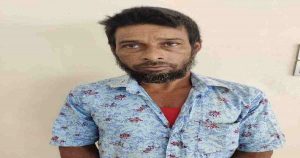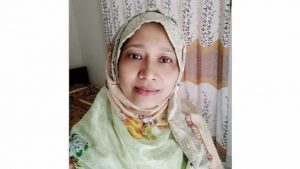After nearly six years of long trial, condemned war criminals Salauddin Quader Chowdhury and Ali Ahsan Muhammad Mojaheed were finally hanged at Dhaka Central Jail in the early hours of Sunday for the atrocities they had committed during the Liberation War in 1971.This was for the first time two war criminals were executed together at the same night since the beginning of the war crimes trial.
Though no war criminal had sought presidential clemency earlier for their horrific war crimes, Salauddin Quader and Mojaheed did it only to be turned down by President Abdul Hamid.
“Salauddin Quader Chowdhury and Ali Ahsan Muhammad Mojaheed were executed at 12:55am,” said Inspector General (Prisons) Brig Gen Syed Iftekhar Uddin.
Prisoners Shahjahan and Raju were the hangmen. They were assisted by some other prisoners.
Jail sources said the two war crimes convicts were hanged with separate nooses at the same scaffold.
Escorted by law enforcers, a hearse carrying the body of executed war criminal Salauddin Quader started for his village home in Rauzan of Chittagong while another with the body of Mojaheed was going to Faridpur. They will be buried at their respective villages.
A total of four ambulances –- two carrying the dead bodies and the two others with dummies — left the jail gate around 2:52am.
The Inspector General (Prisons), Additional Inspector General (Prisons) Col Fazlul Kabir, deputy commissioner of Dhaka Sheikh Tofazzal Hossain Miah, civil surgeon Abdul Malek Mridha and jailer Nesar Alam and jail super Jahangir Kabir were present.
The two war criminals were executed after President Abdul Hamid rejected their mercy petitions.
With the latest two executions, four war criminals have so far been executed, while two others — Jamaat leader Ghulam Azam and BNP leader Abdul Alim who had been sentenced to imprisonment unto their deaths — died in jail.
Hours before the execution, family members of the war crimes convicts met them at the jail as asked by the prison authorities.
Earlier in the day, BNP standing committee member Salauddin Quader Chowdhury and Jamaat-e-Islami secretary general Ali Ahsan Muhammad Mojaheed sought presidential clemency.
“Salauddin Quader and Mojaheed submitted their separate mercy petitions to the President,” Law Minister Anisul Huq had told UNB.
The petitions were first sent to the Home Ministry from where those sent to the Law Ministry and Prime Minister Sheikh Hasina and finally to President Abdul Hamid.
The President, however, turned down the petitions after review.
Earlier in the morning, two magistrates — Tanvir Ahmed Fakir and Khandaker Mushfiqur Rahman — entered the Dhaka Central Jail around 9:30am to know whether they would seek presidential mercy.
Meanwhile, Jamaat termed the news of several media outlets over seeking presidential clemency by its leader Ali Ahsan Muhammad Mojaheed ‘confusing and false’.
After meeting his father along with other family members at the jail, Salauddin Quader’s youngest son Humman Quader Chowdhury claimed that his father did not file any mercy petition to the President.
However, Attorney General Mahbubey Alam said family members of Ali Ahsan Muhammad Mojaheed and Salauddin Quader Chowdhury were creating confusion among people spreading lies about the submission of mercy petitions to the President.
On Thursday evening, the SC released the full text of the verdicts turning down the review petitions of Ali Ahsan Muhammad Mojaheed and Salauddin Quader Chowdhury against its earlier orders upholding their death sentences for committing crimes against humanity during the Liberation War in 1971.
The written verdicts of the duo reached Dhaka Central Jail from the International Crimes Tribunal around 8:42pm on Thursday. Earlier, the verdicts traveled to the International Crimes Tribunal from the Supreme Court around 7:30pm.
On the same day, family members of both of them met them at Dhaka Central Jail.
However, they were not allowed later to meet the two condemned war criminals.
On Wednesday, the SC upheld its previous verdicts on Ali Ahsan Muhammad Mojaheed and BNP leader Salauddin Quader Chowdhury, rejecting their pleas for reviewing their death penalties for war crimes, clearing the way for the execution of the judgment.
On October 14, Mojaheed and SQ Chowdhury filed the review petitions with the SC against its verdicts that upheld their death penalties.
On October 1, the International Crimes Tribunal had issued death warrants against them.
The Supreme Court on June 16 upheld the death sentence awarded by the ICT-2 to Jamaat leader Mojaheed for killing intellectuals during the war.
On October 1, 2013, the then International Crimes Tribunal-1 found Salauddin Quader Chowdhury, the son of Pakistan Convention Muslim League president Fazlul Quader Chowdhury, guilty of crimes against humanity during the war of Liberation and condemned him to death.
The tribunal indicted Salauddin Quader for his involvement in crimes against humanity on 23 counts under different provisions of section 3 (2) of the International Crimes (Tribunals) Act 1973.
The tribunal found Salauddin Quader, son of Pakistan Convention Muslim League president Fazlul Quader Chowdhury, guilty of the crimes of genocide at Rauzan and murder of minority Hindu community members, including Nutan Chandra Singh, the founder of Kundeshwari Owsadhalay of Gohira, Awami League leaders and supporters of Bangladesh’s war of independence.
The tribunal also found him guilty of the charge of torture on the accused carried out on captives at his ancestral house ‘Good Hills’ in the port city of Chittagong during the 1971 Liberation War.
On October 29 of the same year, the BNP leader filed an appeal with the Appellate Division of the Supreme Court against the ICT verdict.
The Supreme Court on June 16 upheld the death sentence awarded by the ICT-2 to Jamaat leader Mojaheed for killing intellectuals during the war.
The Appellate Division upheld the punishments in eight of the nine charges for which Salauddin Quader Chowdhury was found guilty by the ICT-1 that include capital punishment in No 3, 5, 6 and 9 charges.
However, the Appellate Division acquitted him of the charges No 7 charge against him for which he as sentenced to 20 years’ imprisonment.
On July 26, 2010, a case over crimes against humanity was filed against SQ Chowdhury.
He was arrested on December 16, the Victory Day, in 2010 from a Banani’s residence in an arson case filed with Ramna Police Station.
The BNP standing committee member, then a sitting MP, was later shown arrested in the war crimes case on December 19 the same year.
Salauddin Quader was born on March 13, 1949 at Gohira village in Rauzan upazila in Chittagong.
He stepped into politics with Muslim League and later joined Jatiya Party and then NDP.
SQ Chowdhury got involved with BNP in the 1990s and was made the then prime minister Khaleda Zia’s parliamentary affairs adviser after the BNP-led four-party alliance formed government in 2001.
The International Crimes Tirbunal-2 on July 17, 2013, awarded Ali Ahsan Muhammad Mojaheed death penalty for committing crimes against humanity during the Liberation War in collaboration with the Pakistan occupation forces, after finding the AL Badr boss guilty of five charges, out of seven.
The charges included the murder of intellectuals, genocide, abduction and persecution.
Mojaheed was acquitted of the first charge as the tribunal had earlier sentenced him to death for assisting in the killing of martyred journalist Sirajuddin.
Besides, the tribunal had sentenced Mojaheed to death for genocide and brutally torturing the Hindu members of Bakchar village in Faridpur district but the Appellate Division sentenced him to life imprisonment on that charge.
Meanwhile, the Appellate Division upheld the tribunal order sentencing the Jamaat leader to life imprisonment for killing some intellectuals, including Altaf Mahmud, a renowned composer, after torturing them at old MP Hostel in Nakhalpara in the city.
On August 11, 2013, condemned convict Mojaheed filed an appeal with the Appellate Division against his capital punishment awarded by the ICT-2.
Mojaheed was arrested on June 29, 2010 on charge of hurting religious sentiment and later he was shown arrested in a case filed for committing crimes against humanity on August 2 that year.




